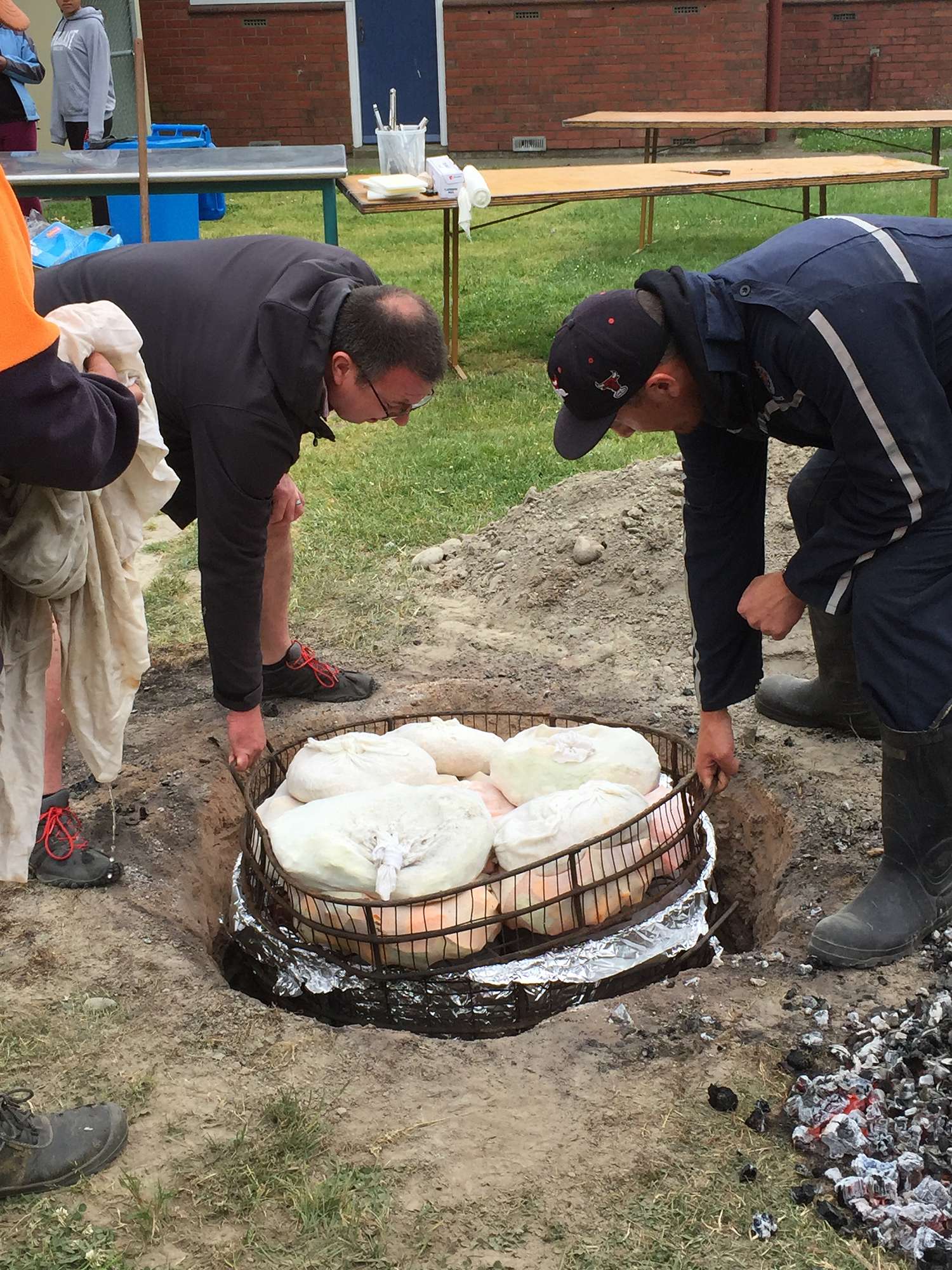
Cobham staff, students, whānau and community members enjoyed a delicious hangi lunch together last Thursday.

 I like to think I can help everyone and want to reduce the workload for teachers as I know they are so busy and appreciate any support they can get, but often this means that I rush to step in and 'fix' things for them, rather than with them. I need to ensure my inner control freak is kept under control!
I like to think I can help everyone and want to reduce the workload for teachers as I know they are so busy and appreciate any support they can get, but often this means that I rush to step in and 'fix' things for them, rather than with them. I need to ensure my inner control freak is kept under control!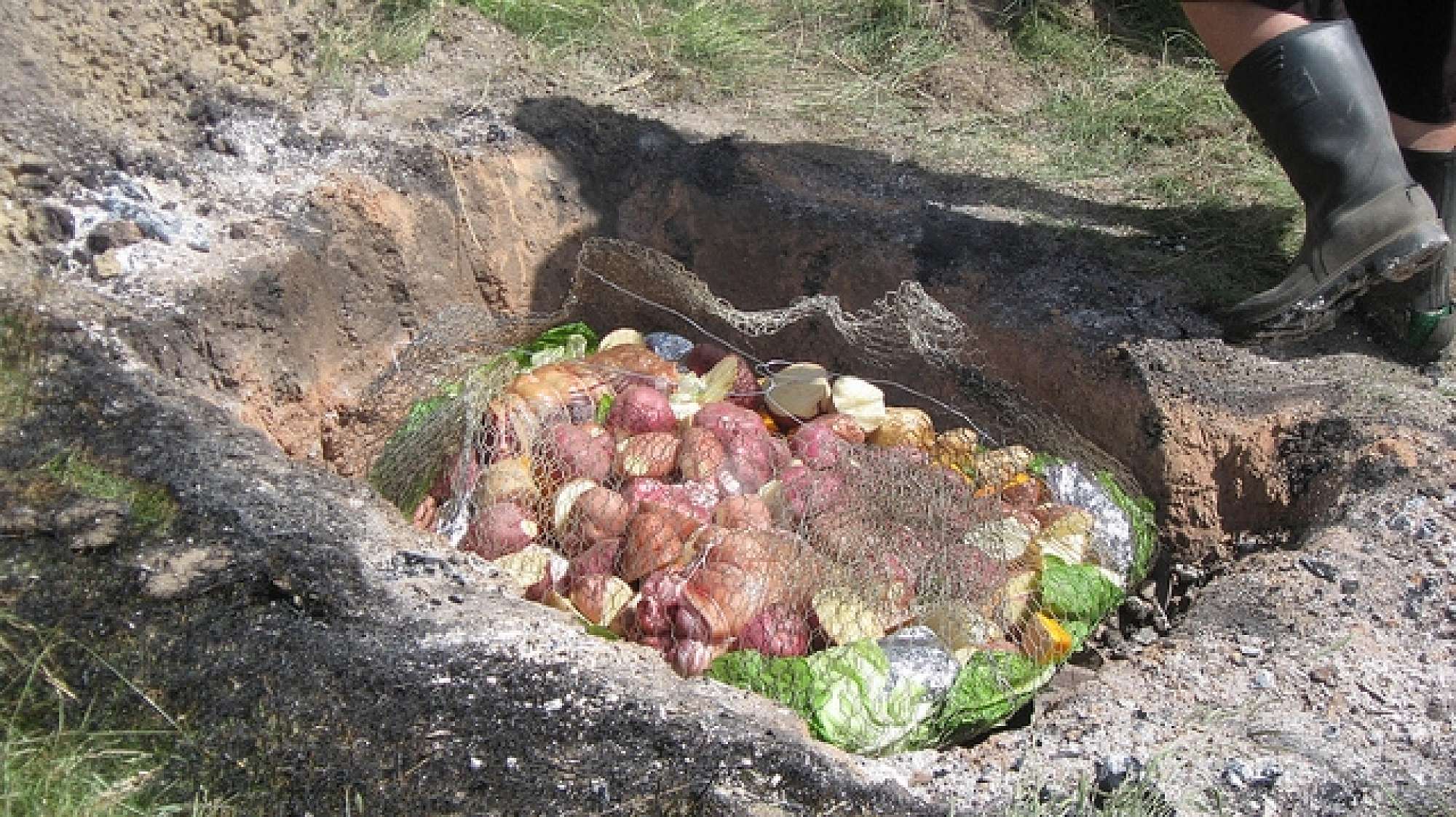 Hāngi pit — by Tamara Bell
Hāngi pit — by Tamara BellGet your orders in now and join us for a hot, delicious hāngi here at Cobham this term!
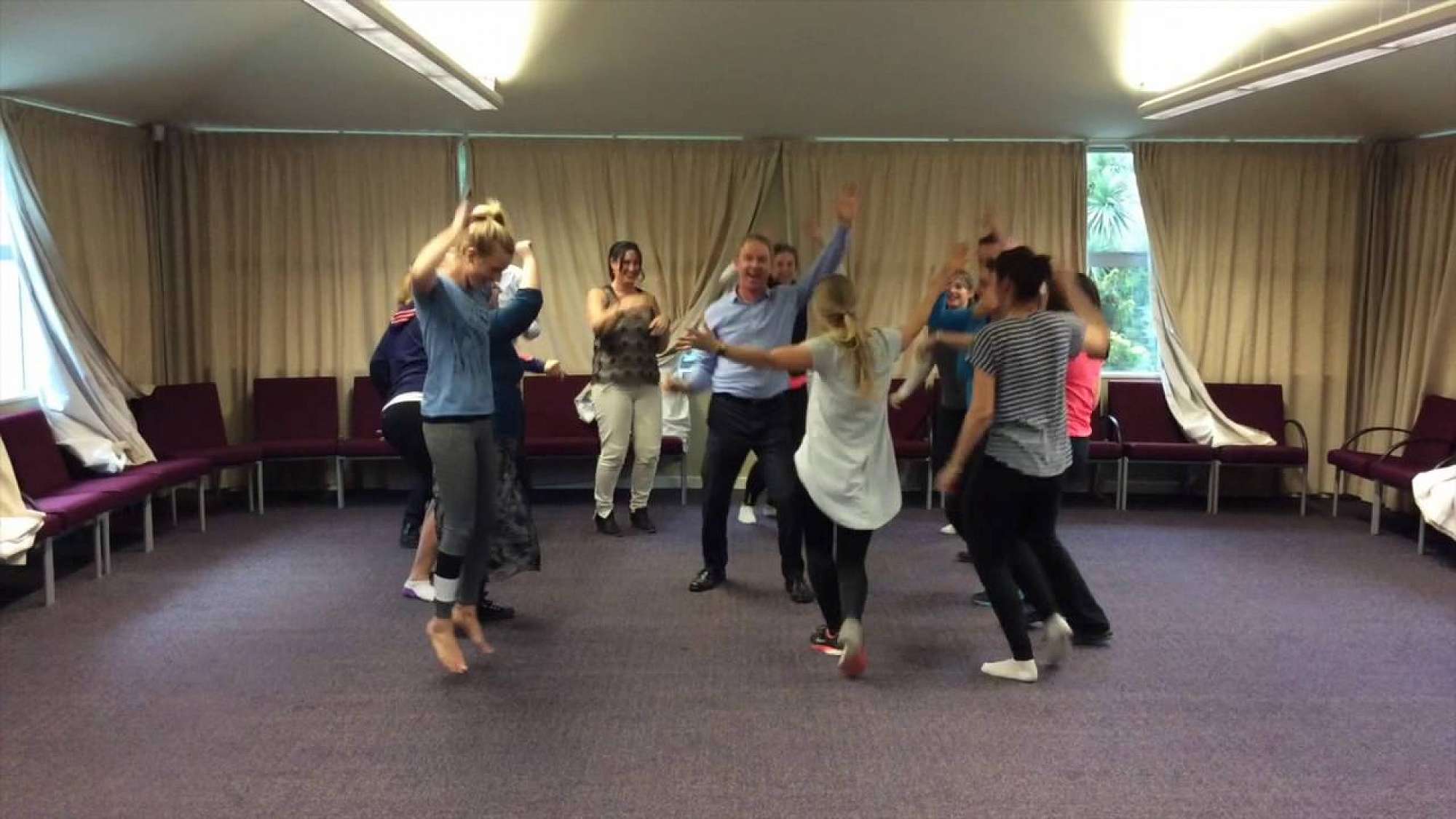 Video: Video: DTDAD Cobham Intermediate Staff 2016 — by Sophie Crawford
Video: Video: DTDAD Cobham Intermediate Staff 2016 — by Sophie CrawfordThis term all of the tamariki at Cobham Intermediate School have participated in the Ditch the Desk and Dance challenge..and the staff responded!
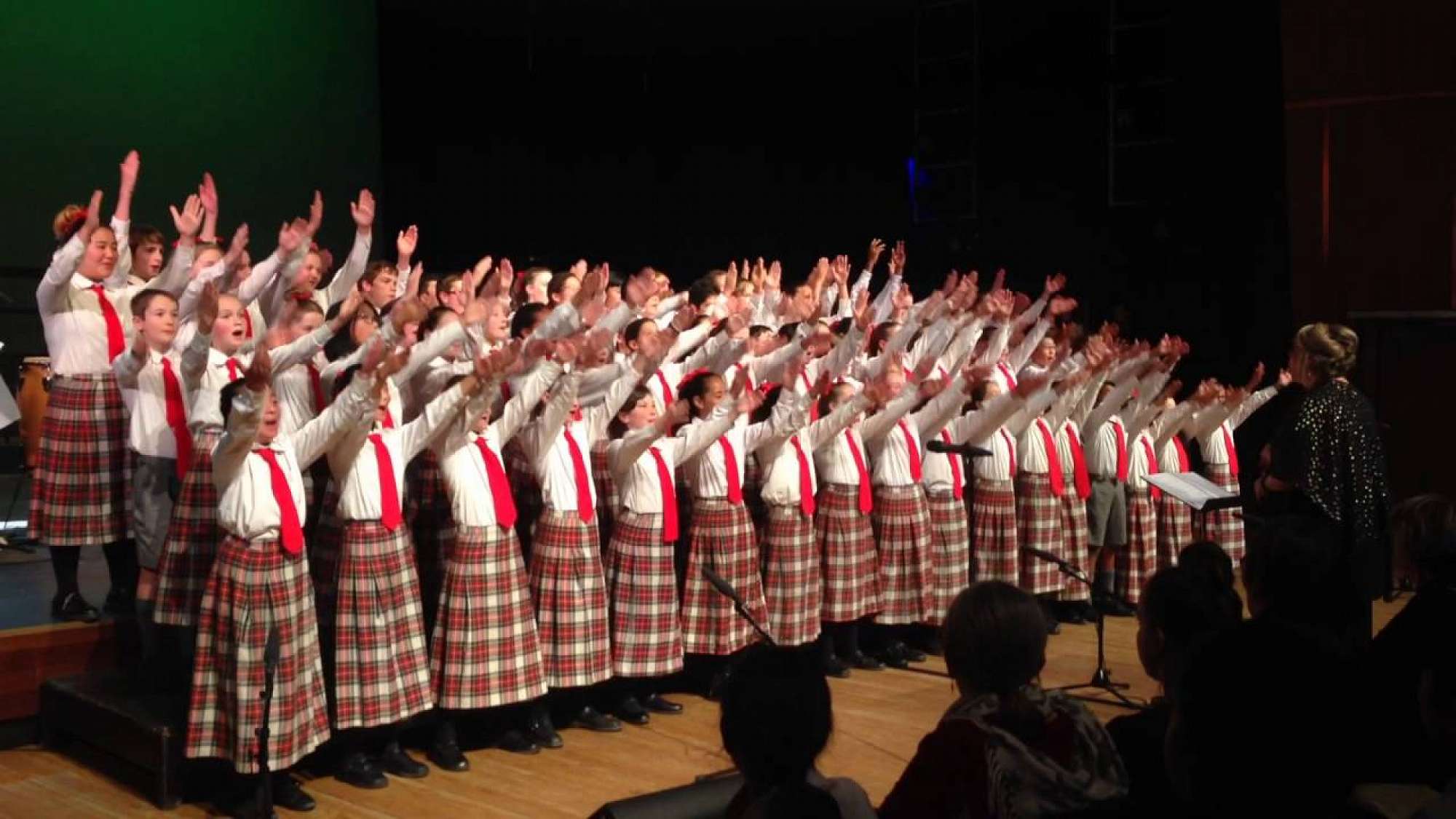 Video: Cobham Intermediate School 2016 Chorale — by Tamara Bell
Video: Cobham Intermediate School 2016 Chorale — by Tamara Bell
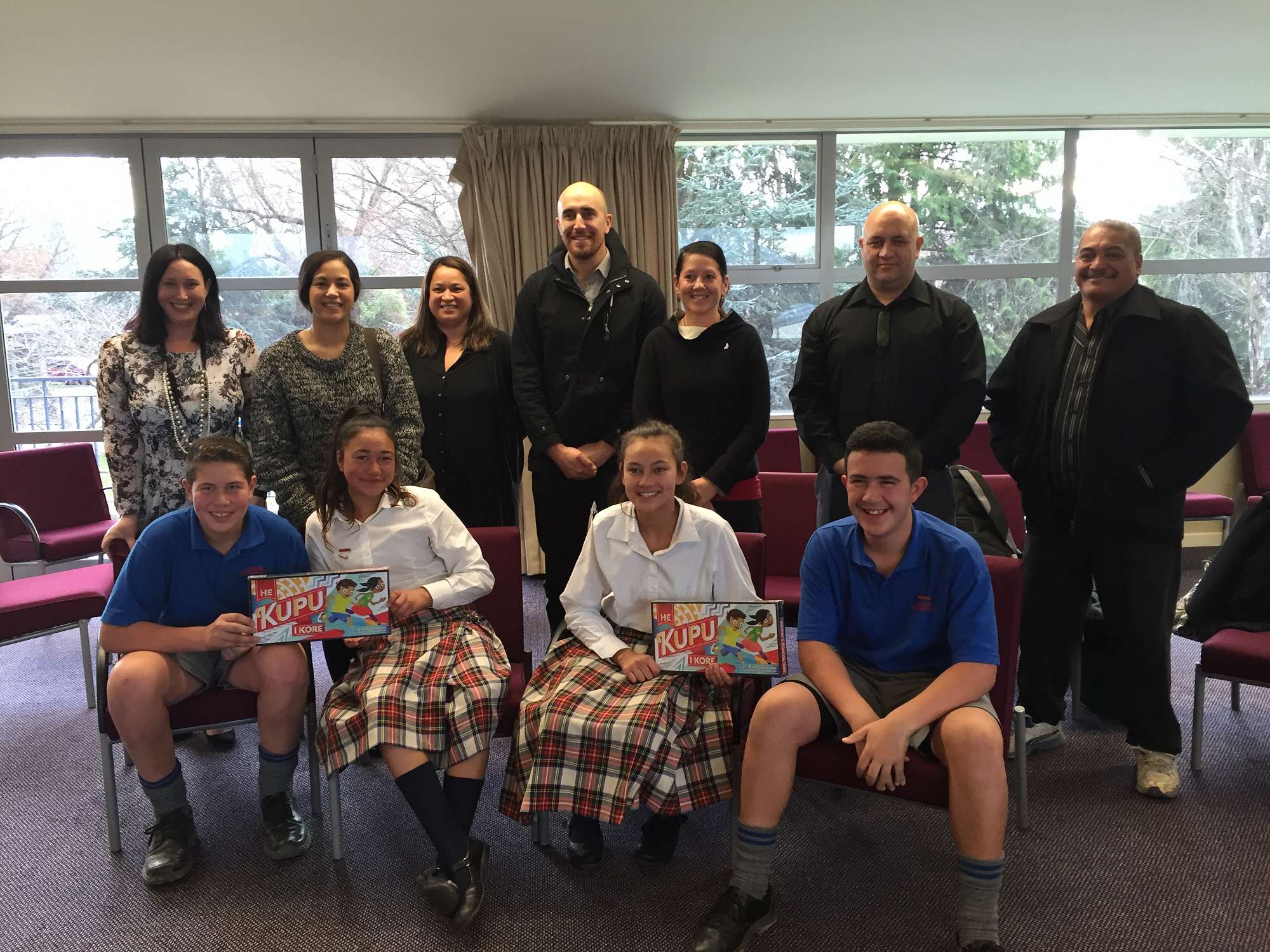
This week is Māori Language Week with the theme Ākina te Reo - give te reo Māori a go!
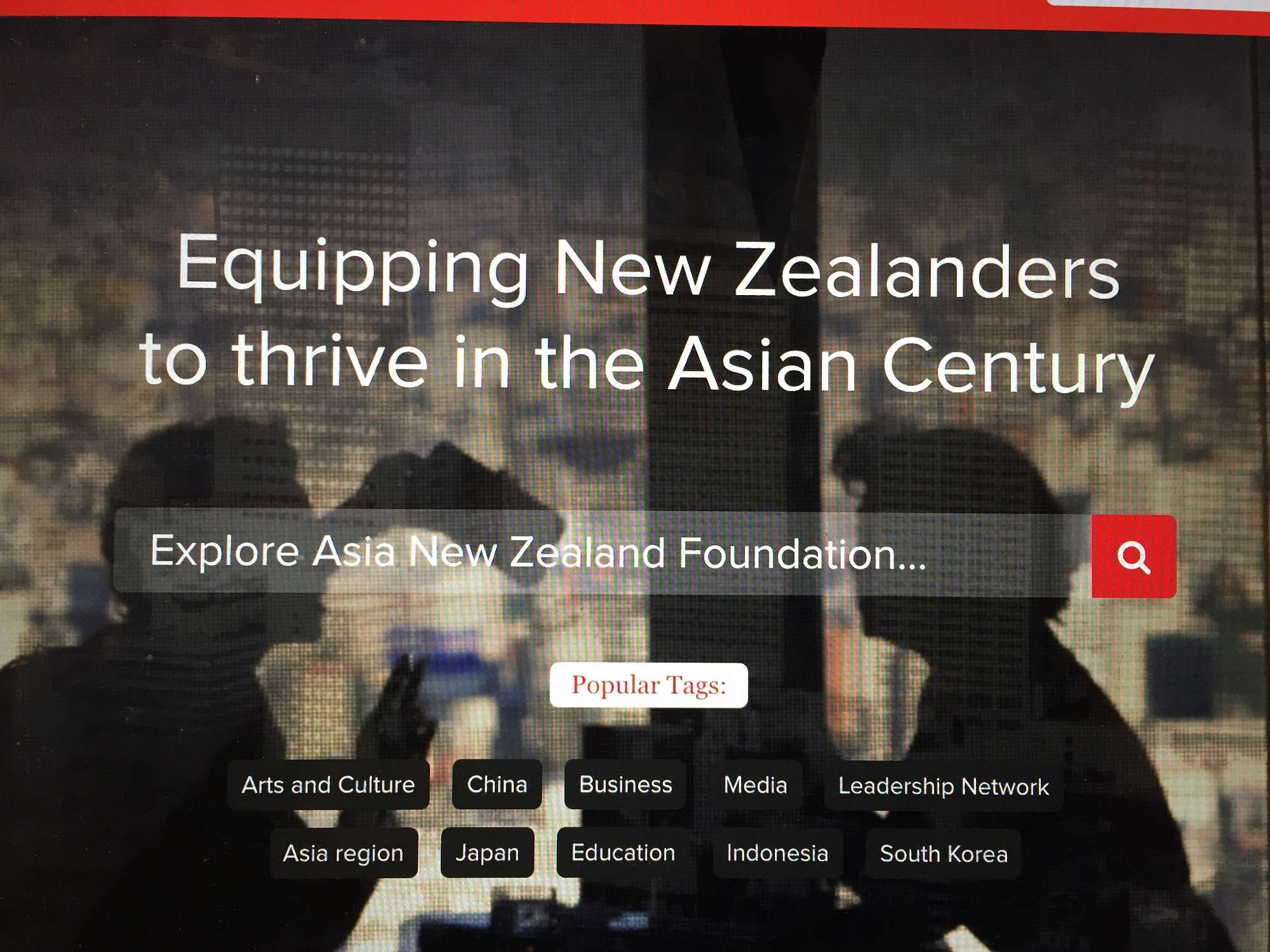
Cobham had the privilege of hosting the Asia NZ Foundation leaders Canterbury workshop this week.


 "The learning was fun and authentic, the kids loved it. The parents loved it. Teachers loved it.
"The learning was fun and authentic, the kids loved it. The parents loved it. Teachers loved it. Finally, I went away from this experience thinking this is absolutely how learning should be. A real issue to address, real life experiences that connect to our community, authentic tasks that allow student strengths to be developed, access for parents, other students and community members to participate in the end result and most importantly, everyone involved was having an awesome time. Watch this space - these types of learning experiences are soon to become the overwhelming norm at Cobham!
Finally, I went away from this experience thinking this is absolutely how learning should be. A real issue to address, real life experiences that connect to our community, authentic tasks that allow student strengths to be developed, access for parents, other students and community members to participate in the end result and most importantly, everyone involved was having an awesome time. Watch this space - these types of learning experiences are soon to become the overwhelming norm at Cobham!
